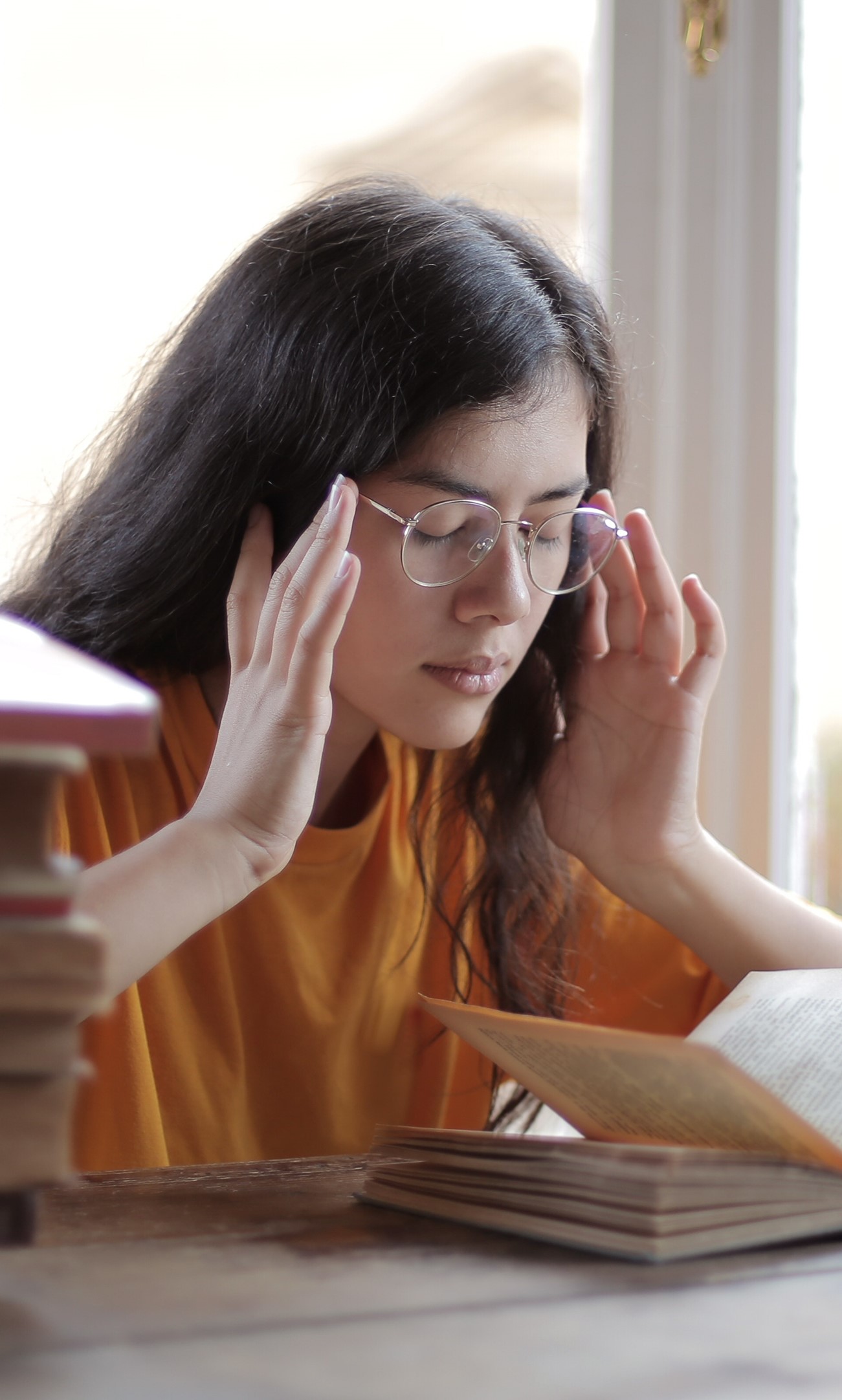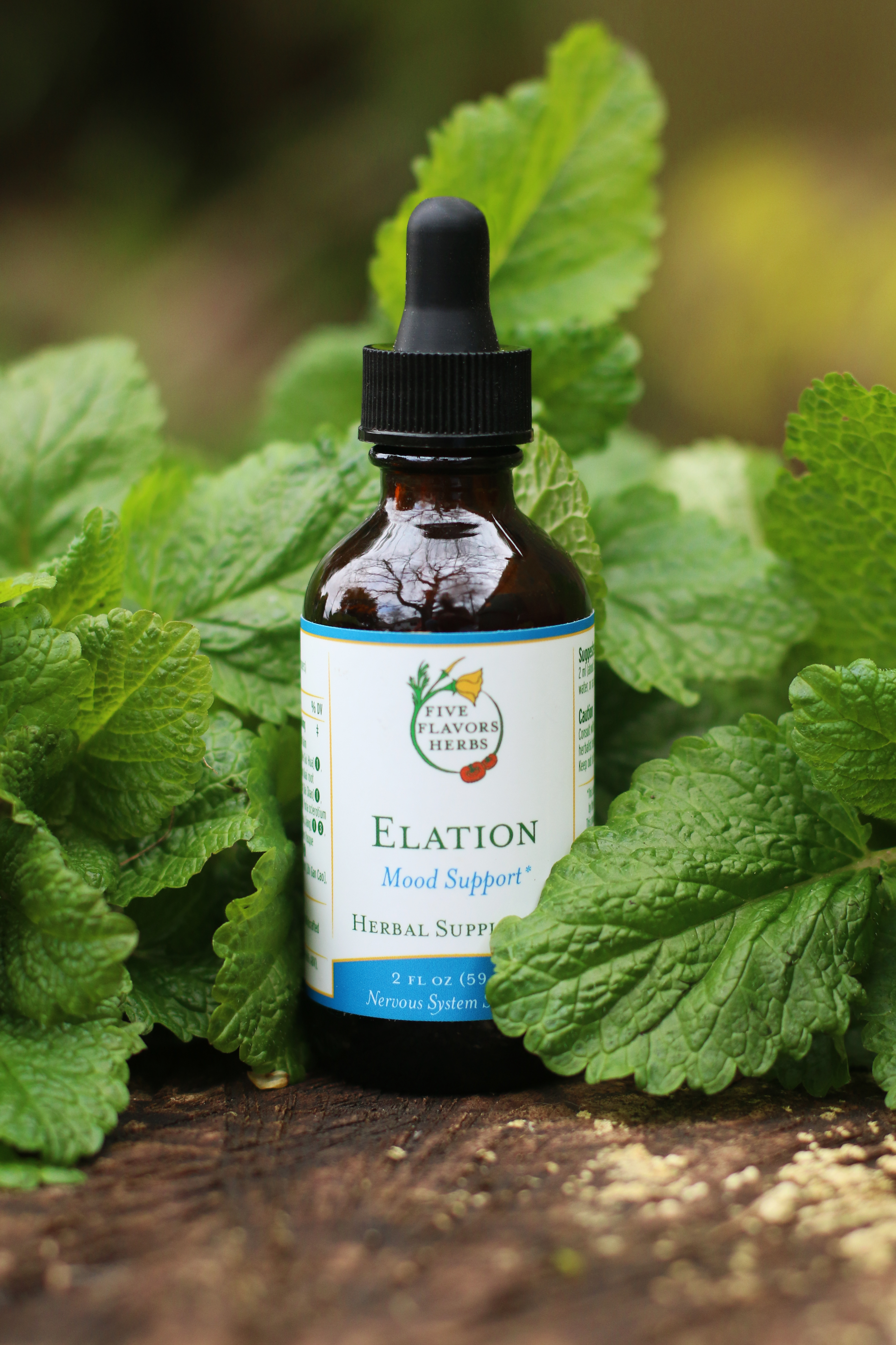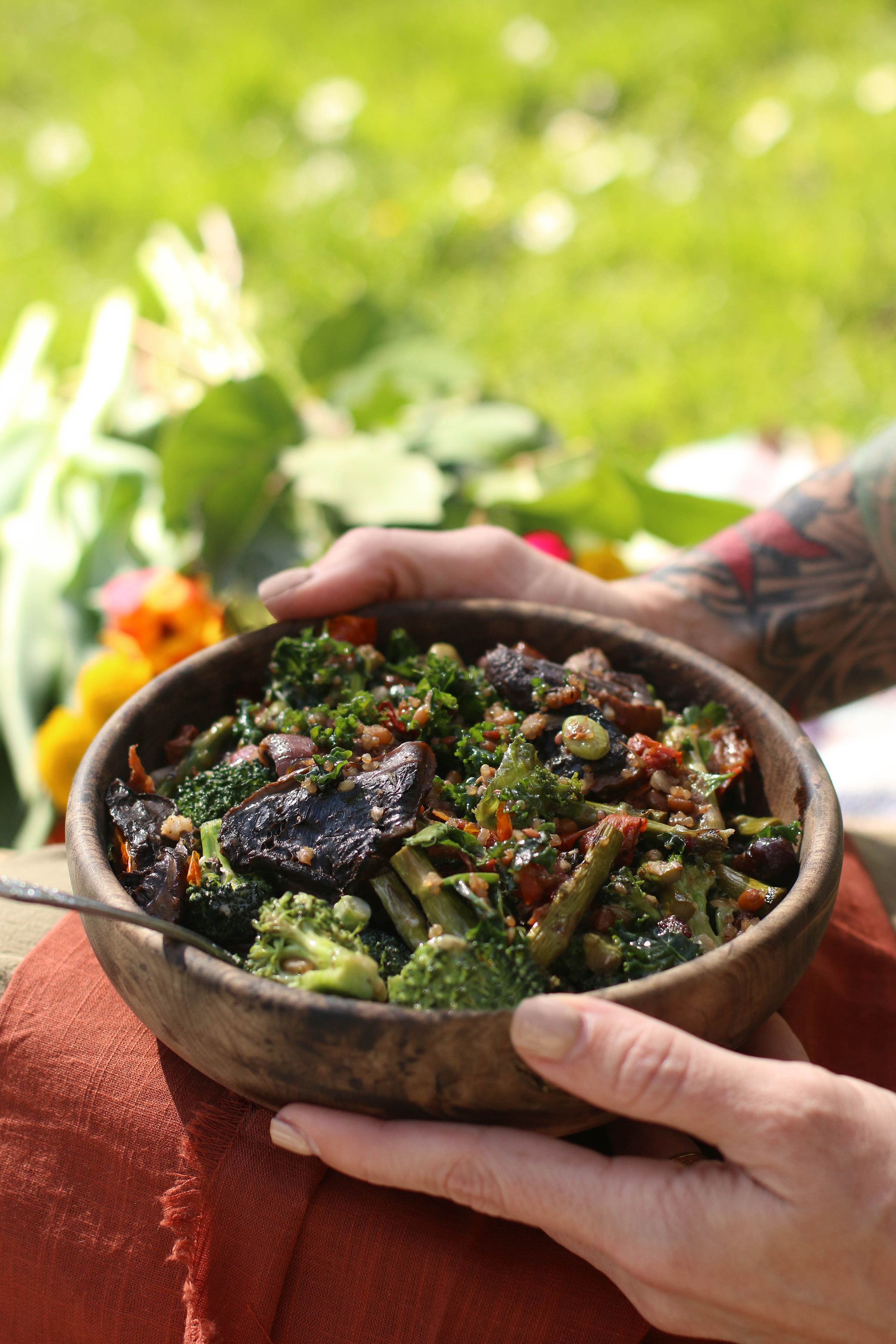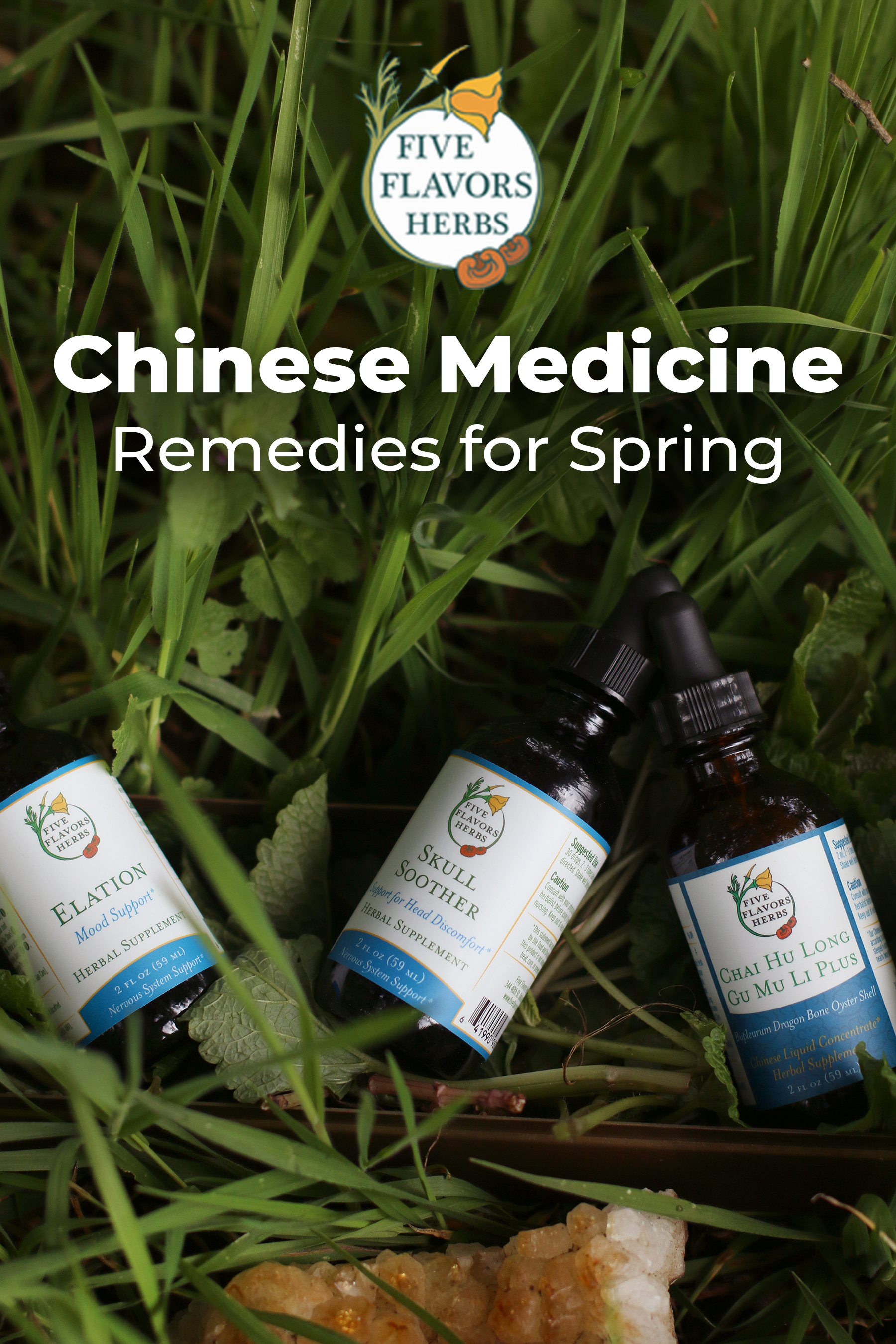Spring’s arrival is heralded by vivid greenery, delicate blooms—and some significant energy shifts. In the five phase model of Traditional Chinese Medicine, spring correlates with the Wood element and is associated with the Liver and Gallbladder organs and channels. Early spring coincides with the transition between the deeper Water phase and Wood phase, in which yang warming energy is moving upward and outward. People and other animals tend to follow suit with these themes of emergence and vitality, shaking loose winter’s emotional and physical stagnation by taking advantage of more time spent enjoying the outdoors.
Ultimately, this emergent energy is a desirable, predictable, and necessary part of the annual life cycle. However, if our Liver/Gallbladder channel and organ qi are not flowing smoothly, this seasonal shift can induce disturbances that may result in physical and/or psycho-emotional distress. The Liver is in charge of free distribution of qi throughout the body, and disorder in the Liver channel or organ can manifest as a myriad of physical complaints, often without any apparent specific cause. Spring’s energy can overwhelm us, as if we’ve suddenly been filled with something too big, strong, or hot to handle, and this can put strain on the body, mind, and Spirit.
Bupleurum Root Benefits for Spring
The most important herb for managing spring Liver disruptions is Bupleurum root (chai hu). Bupleurum uses its bitter, aromatic, and cool energies in conjunction with other herbs in formula to harmonize Liver qi, cool expressions of heat disturbing body and mind, and alleviate various other symptoms. The Bupleurum formula family is dynamic and dynastic, and its foundational formulas have been documented, commented upon, and researched since they were chronicled by Zhang Zhong Zing in the Treatise on Cold Damage (Shang Han Lun) and Essential Prescriptions from the Golden Cabinet (Jin Gui Yao Lue), circa 180 CE.
Some of the most common expressions of Liver qi in disharmony (or, more formally, “binding depression of Liver qi”) include swelling and discomfort in various bodily regions—head, throat, chest, Heart, lateral ribs, lower abdomen, intestines, and genitals—often exacerbated by emotional distress. Headache, dizziness, restlessness, irritability, mild anxiety, and sleep disturbances are common neuropsychological expressions of Liver qi channel and organ disharmony. When evaluating disorders like these, TCM practitioners take into account a patient’s constellation of symptoms, both self-reported and those detected through physical examination, to come to a comprehensive diagnosis and an appropriate formula for addressing it.
Bupleurum Remedies for Allergy Season
Many suffer from head complaints in the spring. The start of pollen season is one obvious culprit, while changes in air pressure, temperature, and humidity may also play a role. It is very common to observe patterns of discomfort of the head that traverse the Liver and Gallbladder channels, and bupleurum formulas can address these disturbances by helping qi flow more freely. Herbs such as ambrosia and goldenrod (found in our Clear Passage congestion tincture, which does not contain bupleurum) have also been shown to moderate the experience of seasonal allergy sufferers.
Xiao Yao San for Irritability
One of the most famous and widely prescribed TCM formulas in the Western world is “Free and Easy Wander,” or Xiao Yao San, which spreads Liver qi, strengthens digestion and Spleen, and nourishes the Blood. Variations on this formula are used for emotional disorders related to excess fire in the Liver, including those caused by seasonal and hormonal shifts. For cases in which irritability and agitation are principal symptoms (indicating qi constraint), we’ve added gardenia (zhi zi) and tree peony (mu dan pi) to create Jia Wei Xiao Yao San, bringing an extra layer of heat-clearing power to the original formula’s regulating influence. And when you need a cool head quickly, our Elation Tincture delivers the fast-acting assistance of Western herbs like Western pasque flower and lemon balm for a mood boost now and longer lasting relief over time. Our New Moon PMS tincture, aka Xiao Yao San plus chasteberry, can help alleviate premenstrual syndrome (PMS), which is often experienced with symptoms of physical and emotional discomfort similar to those caused by season shifts.
Bupleurum Root Psychiatric Applications
Chai Hu Jia Long Gu Mu Li Tang, or “Bupleurum, Dragon Bone, and Oyster Shell,” is the most profound calmative in the TCM repertoire. As a practitioner, I revere this formula as a powerful tool for supporting patients experiencing severe expressions of emotional disharmony. I have spent much of my healthcare career working with those experiencing extreme psychological disturbances (schizophrenia, bipolar disorder, and others) or struggling with substance dependencies, and these patients have often reported experiencing more pronounced versions of their psycho-emotional distress in the spring. Many of these patients have used the Five Flavors Herbs modified formula Chai Hu Jia Long Gu Mu Li Plus (which incorporates Western nervines anemone, skullcap, and California poppy) in springtime and throughout the year as needed to reground themselves during times of particular intensity.
(NOTE: Anyone experiencing any of the states or conditions mentioned here should be working with a collaborative team of integrative practitioners, including a psychiatrist.)
More Natural Wellness Tips for Spring
In addition to taking herbs, other practical lifestyle measures can help facilitate the smooth flow of qi and a graceful transition into spring. Here are some recommendations:
- Eat bitter greens: Bitter foods stimulate digestion and smooth the flow of qi. Some common bitter greens include dandelion, mustard, chicory, arugula, mizuna, and burdock root. Depending on where you live, this may be a great time to harvest the wild bitters in your area, such as chickweed, nettles, thistles, and others. These can be delicious in salads or lightly steamed with a mild vinaigrette (you don’t want to eclipse the bitter flavor, because tasting it is important for tapping into its medicinal actions!).
- Spring clean your diet: Foods that aggravate Liver-Gallbladder qi disharmonies include alcohol, caffeine, excess spice, excess fat, and sugar, so reduce consumption to respect your body during this transitional time. However, we’ve also observed that irregular eating and being overly concerned with what one is eating can contribute to Liver qi irregularities, so don’t obsess about your diet choices either!
- Stretch: The Liver also correlates to the tendons in five phase theory, so it is considered important to stretch to facilitate harmonious Liver qi. As we are apt to increase our movement in spring (between more opportunities for outdoor play and the necessities of farm and garden chores), it is important to stretch in support of agility and stability as well.
- Massage the Liver channel: Self massage is a valuable and accessible skill that is actively promoted around the world. The hands, a proper gua sha tool, or a ceramic soup spoon can be used to massage areas along the distribution of the Liver channel, especially along the inner calf between the knee and ankle.
- Move: Brisk walks, dancing, hikes, qigong, biking and more are all valuable tools for promoting the flow of Liver qi and building vitality.
- Acupuncture: Seasonal transitions can be excellent opportunities to receive care from your acupuncturist, even if you’re not experiencing overt symptoms. We strongly recommend developing therapeutic relationships in your community with integrative medicine practitioners to keep you well and vital, so you will have those trusting relationships in place when you really need them!
MORE NATURAL MOOD SUPPORT TIPS:
ASHWAGANDHA FOR REST, ENERGY & HEALTH
You might also enjoy:
- Jade Windscreen Recipes for Respiratory & Immune Support
- The Five Flavors in Traditional Chinese Medicine
Written by Benjamin Zappin, LAc: Five Flavors Herbs co-founder Benjamin Zappin is one of the Bay Area's most respected and knowledgeable herbalists and a licensed acupuncturist. With over 20 years of experience, Benjamin synthesizes his deep knowledge of Chinese and western herbal medicine with modern medical perspectives to create effective herbal formulas and treat patients. He serves patients through Paeonia Integrative Medicine.





